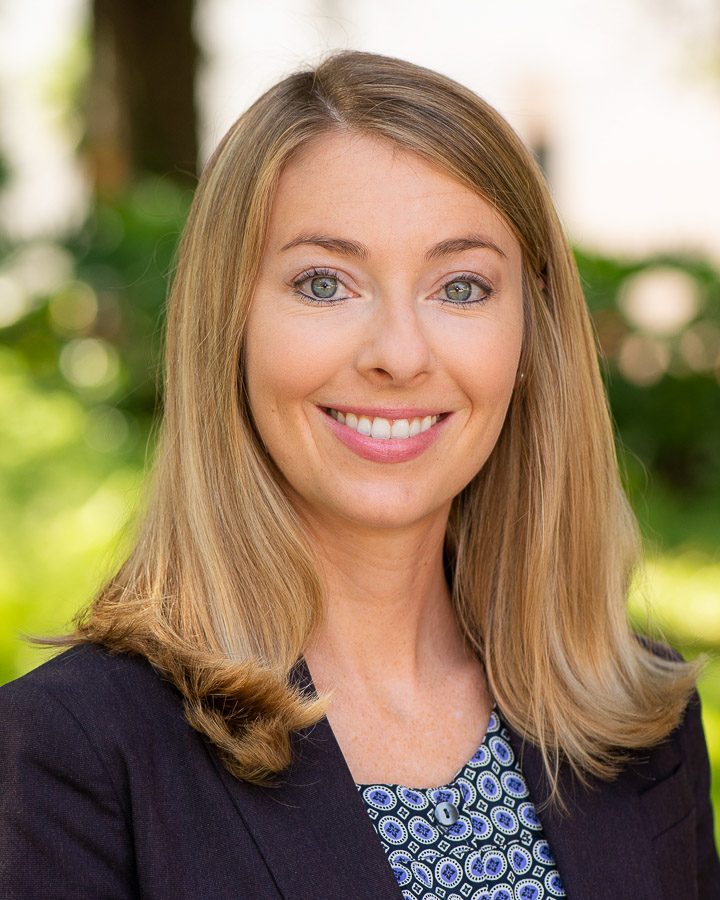
A survey of small businesses by Florida State University researchers has found that 15.2 percent of those studied have closed their doors permanently as a result of the COVID-19 shutdown.
Assistant Professor of Management Samantha Paustian-Underdahl led the research team that examined the effects of the COVID-19 pandemic on 567 small businesses and nonprofit organizations (NPO) throughout the United States.
Funded by the Jim Moran Institute for Global Entrepreneurship in the College of Business, the survey asked participants to provide feedback on employee layoffs, government loan programs, operating capacity and stress levels, among other factors, to measure how businesses have changed daily operations during this global pandemic.
It found that 15.2 percent of its participants closed permanently, and 14.5 percent of participants closed temporarily. Another 31 percent of participants are operating below 40 percent capacity, while close to 40 percent of participants are operating at 40 percent or higher during COVID-19.
Participants also were asked if they laid off employees during COVID-19 — 46.7 percent reported doing so, while 51 percent reported that they did not. The average number of employees laid off was 10.5.
“Small businesses and nonprofits have taken a huge hit during this time, with nearly 30 percent of our sample needing to close temporarily or permanently as of early May,” Paustian-Underdahl said. “The good news is that most organizations are getting some help.”
Of the participants who applied for government funding, nearly 92 percent received some type of financial assistance.
“Florida seems to be faring better than other parts of the country as only 10 percent of the 137 Florida businesses in our sample have temporarily or permanently closed, and only 32 percent have laid off any employees,” Paustian-Underdahl added.
Participants also were surveyed about their experience applying for and receiving funds from the Paycheck Protection Program (PPP) and Economic Injury Disaster Loan (EIDL). Results revealed that business owners and NPO leaders received funding from one of these government loan programs, but not both.
Of the respondents, 75.5 percent applied for one or both types of government aid. Of participants who applied, 28.9 percent received PPP funding only, 26.8 percent received EIDL only, 11.3 percent received both PPP and EIDL, and 8.3 percent did not receive anything.
Researchers also found that business owners and NPO leaders are experiencing different effects of COVID-19 on their overall well-being and performance, depending on their gender.
“Consistent with recent research by Gallup, we found that women who own small businesses are experiencing higher levels of stress and burnout during COVID-19 compared to men,” Paustian-Underdahl said. “While some may assume this could be due to higher work-family-conflict, we found the men surveyed are reporting higher work-family-conflict than women.”
One reason could be that women are already used to juggling work with family, but men may be making more of an adjustment during COVID-19, Paustian-Underdahl said.
“Despite being more stressed, the women in our sample are more satisfied with their performance and that of their organizations during COVID, compared to men, so maybe their hard work is paying off,” she said.
Through a series of open-ended questions, participants were asked to share strategies and solutions they have implemented to meet the challenges faced during COVID-19.
The most common strategies included: increased communication with employees to ensure tasks are followed and support is given during these difficult times; an increased focus on implementing technology and creating online content in greater frequency than before the pandemic; shifting from actively seeking new clients during this time and instead creating unique ways to contact and keep existing clients; adopting cost-cutting strategies, including reducing full-time employees to part-time, layoffs, furloughs, and/or implementing creative new tasks for employees; pivoting into new services, goods and customers; and increasing their focus on healthy living, exercise and mental health for their employees and customers.
About the Jim Moran Institute for Global Entrepreneurship
The Jim Moran Institute for Global Entrepreneurship cultivates, trains and inspires entrepreneurial leaders through world-class executive education, applied training, public recognition and leading-edge research.
Jim Moran was an automotive pioneer and an entrepreneur at heart, who at the age of 7, sold soda pop at sandlot baseball diamonds in Chicago. With a career that spanned more than six decades, he built an amazing chronicle of achievements in the automobile industry.
His vision for the Jim Moran Institute was to provide opportunities that would help others become more successful business owners. A 1995 contribution from Jim and Jan Moran and JM Family Enterprises established the Jim Moran Institute for Global Entrepreneurship at the Florida State University College of Business. Since 2011, further enhancements to the Jim Moran Institute and its outreach have been made possible by Jan Moran and The Jim Moran Foundation.
For more information, visit jimmoraninstitute.fsu.edu.




